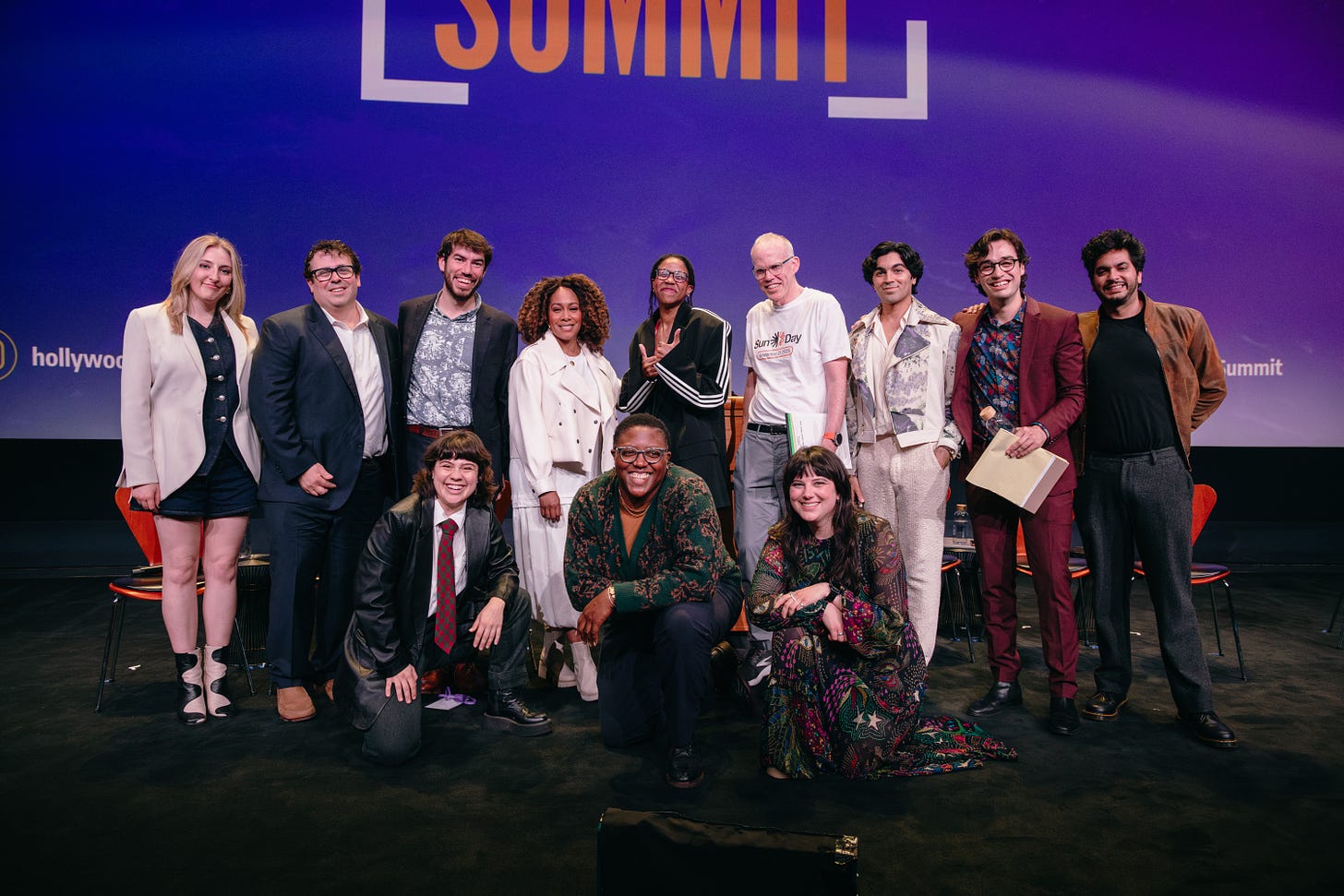Messaging on the Stand: Putting Big Oil on Trial
Big Oil on Trial at the Hollywood Climate Summit
Hollywood Climate Summit 2025 Wrap-Up
Last week at the Hollywood Climate Summit, we tried something new: we held court.
In a packed Samuel Goldwyn Theater, a cast of comedians, actors, and climate experts stepped into a theatrical courtroom to put the fossil fuel industry’s storytelling tactics on trial.
Inspired by Bill McKibben and Naomi Klein’s Exxon vs. the People mock trial during COP21, this new take was part improv comedy, part media literacy, and fully rooted in the real-world consequences of disinformation.
The Charges:
The fossil fuel industry stood accused of:
Misleading the public against their own interests and health
Lying about the deadly effects of fossil fuels and climate change
Funding deceptive advertising campaigns
Racketeering
Cast of Characters
Judge: The Honorable Simone Missick
Prosecution: Nimay Ndolo, Esteban Gast, and Shantira Jackson
Defense: Anna Garcia, Abdullah Saeed, and Joey Bragg
Expert Witnesses: Climate leaders Bill McKibben, Saad Amer, Jessie Bluedorn, and Adrian Martinez
Jury: The audience
Exhibit A: The Blame Game
The prosecution's first evidence focused on the industry's long history of shifting climate blame onto individuals. Esteban detailed how campaigns like Keep America Beautiful (launched with support from Coca-Cola and Dixie Cup) placed the responsibility for plastic pollution on the public while letting corporations off the hook.
The defense, naturally, had a different view: We gave you paper straws, and you hated them. We invested in recycling centers—so what if they shut down? But expert witness Bill McKibben reminded us that Big Oil multiplied harm while convincing us we had control through tools like BP’s infamous carbon footprint calculator.
Exhibit B: The All-or-Nothing Narrative
In a cinematic rebuttal, the defense submitted a high-drama video ad of hospital tech and emergency care—“all made possible by oil and gas!”
The message? Without fossil fuels, we have nothing.
But prosecutor Nimay Ndolo wasn’t buying it. “At what cost?” she asked, turning the spotlight to the human toll of fossil fuel dependence—billions in climate damages, thousands of premature deaths, and a chronic failure to invest in true disaster resilience.
Expert witnesses Adrian Martinez and Saad Amer reinforced her case, laying out hard-hitting evidence that underscored the industry’s pattern of harm and deflection.
Exhibit C: The Children vs. Big Oil
Shantira Jackson took the stand to show how the industry has long targeted children with “educational” content. From Petro Pete in Oklahoma classrooms to Shell-sponsored Fortnite campaigns, the fossil fuel industry has invested heavily in shaping young minds.
The defense leaned into the absurd, proudly invoking a real classroom activity where Ohio teachers were taught how to frack a Twinkie to demonstrate drilling techniques.
Expert witness Jessie Bluedorn followed with a stark reminder: the industry's influence runs deep in academia, with fossil fuel dollars funding university programs, steering research agendas, and quietly molding the next generation of scientists.
Closing Arguments and Final Verdict
Today, 32 lawsuits across the U.S. and hundreds more around the world are working to hold fossil fuel companies accountable for decades of deception and delay. Meanwhile, Climate Superfund laws in Vermont and New York — and similar efforts in ten other states — aim to make polluters pay for the damage they’ve caused, both to our planet and to the public narrative.
The defense may have delivered laughs, but their case couldn’t hold up against the facts. After three acts of testimony, memes, chaos, and catharsis, the jury returned a clear verdict: guilty.
Messaging on the Stand wasn’t just a performance. It was a blueprint for better storytelling, sharper advocacy, and reclaiming the narrative from Big Oil. It dared us to laugh—and then to act.









Le coeur en avant.